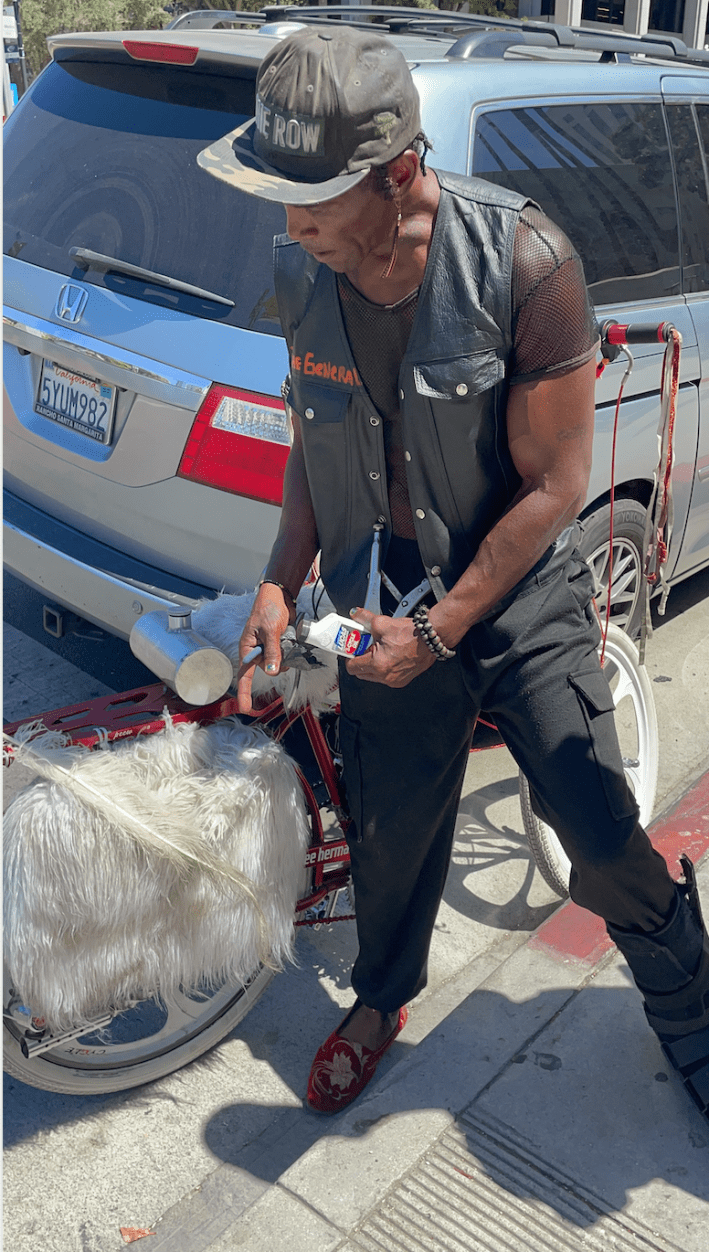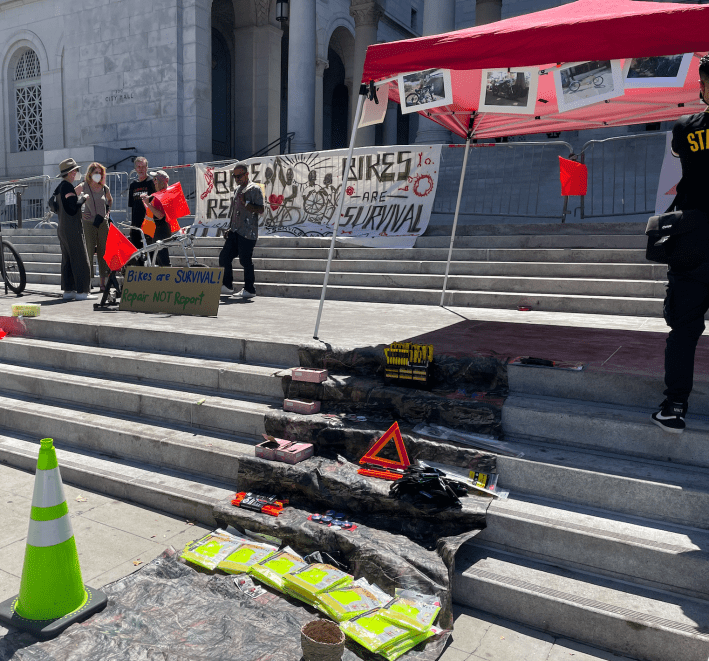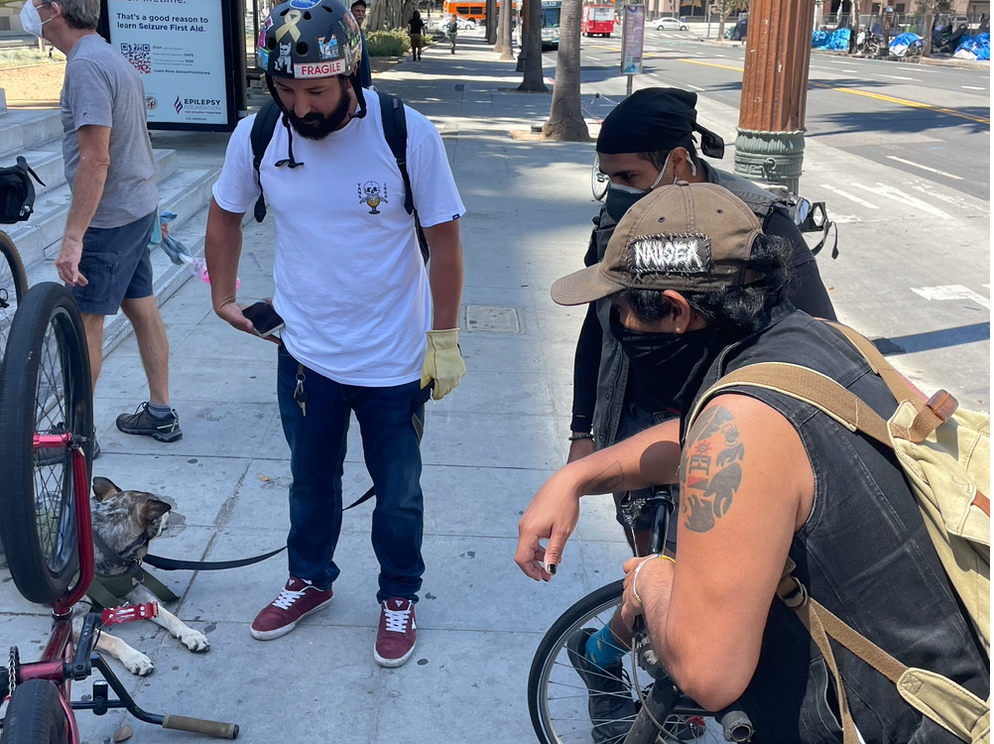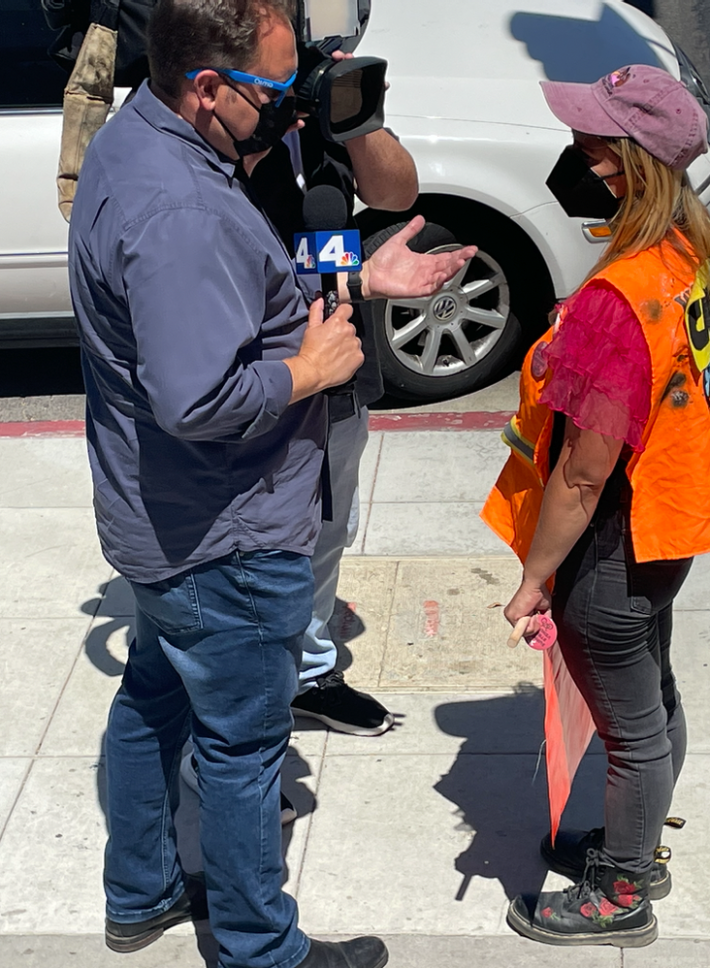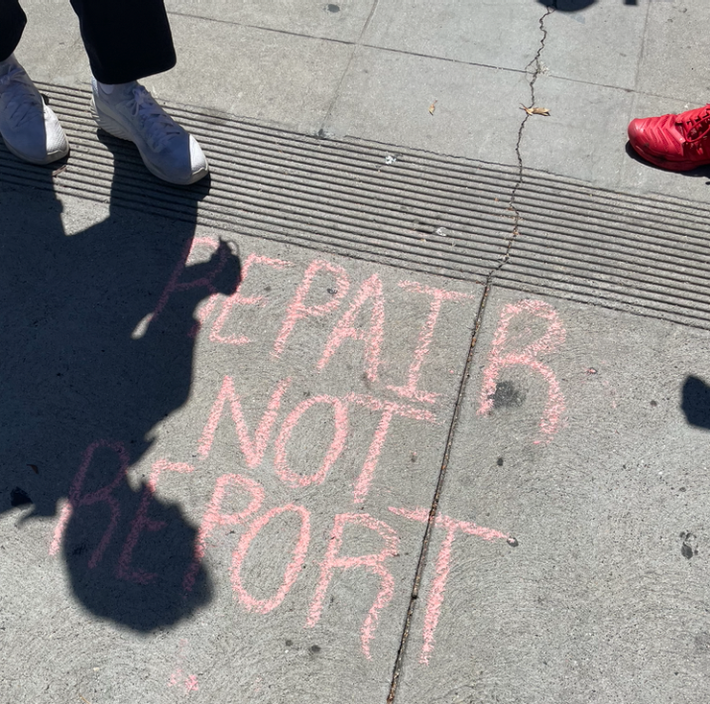After failing to secure a unanimous approval last week, City Council mustered up the majority vote needed to approve a controversial ordinance cracking down on bicycle "chop shops" while three dozen bike mechanics and advocates for the rights of the unhoused rallied outside in opposition. The "pop-up bike clinic" they set up on the western steps of City Hall served as a press event, a chance to educate passers-by on the new law, and an opportunity to fix some bicycles in Downtown Los Angeles.
The final vote on the motion was 9-3 with Councilmembers Mike Bonin, Marqueece Harris-Dawson, and Nithya Raman voting in opposition. Harris-Dawson voted for the measure last week, and explained his change of heart on the measure on Twitter:
Enforcement and discrimination are not strangers.
— Marqueece Harris-Dawson (@mhdcd8) June 21, 2022
The motion, introduced by Councilmembers Joe Buscaino and John Lee, prohibits the repair, sale, and storage of bicycles and bicycle parts on public property by people who have amassed five or more major bicycle parts (handlebars, wheels, forks, pedals, cranks, seats, or chains), a frame with the cables cut, two or more bikes with missing parts, or three or more bicycles. But for the advocates outside City Hall, these arguments held little weight as they saw the motion as a chance to criminalize homelessness and harass cyclists in communities of color.
"You see people break down all the time," said General Dogin (pictured below). "Cars break down. Motorcycles break down. They can get fixed right on the street, but I can't fix my bicycle? When my bike breaks down I have to pick it up and carry it five miles to a repair shop?"
Adoga was unpersuaded by changes made to the original ordinance at the request of Harris-Dawson that created an exemption for people fixing their own bicycles. "That depends on the cop," he explained. "If the cop comes up and says 'You can't repair a bike on the street,' he's going to give me a ticket. The law is enforced differently on different people. If you have an issue with one or two people, you take it up with them. You don't pass a law that's going to make everyone's lives worse."
Buscaino and his allies on the council argue that bike theft is a serious problem in Los Angeles, and that his motion was not aimed at anything other than reducing bicycle theft and returning stolen bikes to their rightful owners. But the difficulty of tracking bike theft - a reality Buscaino's motion openly acknowledged - means there is no hard data to support claims that such an approach is effective. Bike theft is indeed a problem, but as noted in Streetsblog's coverage last week, enforcement via this ordinance is more likely to result in people with bikes just being pushed from place to place, with actual arrests and recovery of bikes being far more rare.
Sitting next to each other on the stairs were Enzo Loconte, representing Bikerowave in West Los Angeles and Steve Campos, representing BikeOven 2.0 housed in Northeast LA where progressive challenger Eunisses Hernandez declared victory over incumbent Councilmember Gil Cedillo last week. Cedillo voted in favor of this measure last week (but was absent from today's vote). The Bike Oven has its own store front, but regularly hosts clinics where people can get bicycles fixed, improve their own skills or have access to space and tools to fix their own bicycles.
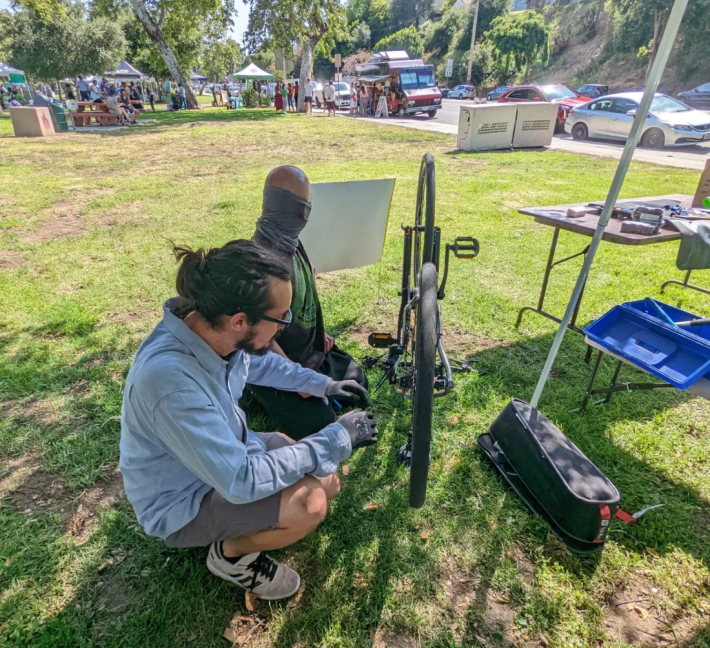
"I don't really think this is about reducing bike theft like they say it is," opined Lobotay. "It might have some effect, but won't outweigh the negative effect that it will have on the unhoused community, especially the people that are just trying to repair their bikes or help someone else in the community repair their bike."
Some have suggested that this motion was part of Buscaino's attempt to raise his profile citywide before his unsuccessful mayoral campaign. Advocates at the event saw his dismal showing, he was polling at 1% support before dropping out, as evidence that the residents of Los Angeles have rejected his approach to homelessness.
"How's his mayoral campaign going?" asked Streetswatch LA organizer Carla Orendorff, pictured below, when read a summary of the arguments for the ordinance supplied by Buscaino's office. "It sounds like his ideas are super popular," she continued.
"If this is a war on unhoused people, then people like Joe Buscaino are dying dinosaurs. Criminalizing poor people and punching down like this is not solving anything. It's just making people's lives worse."
The ordinance will not take effect until it is signed by Mayor Eric Garcetti.
